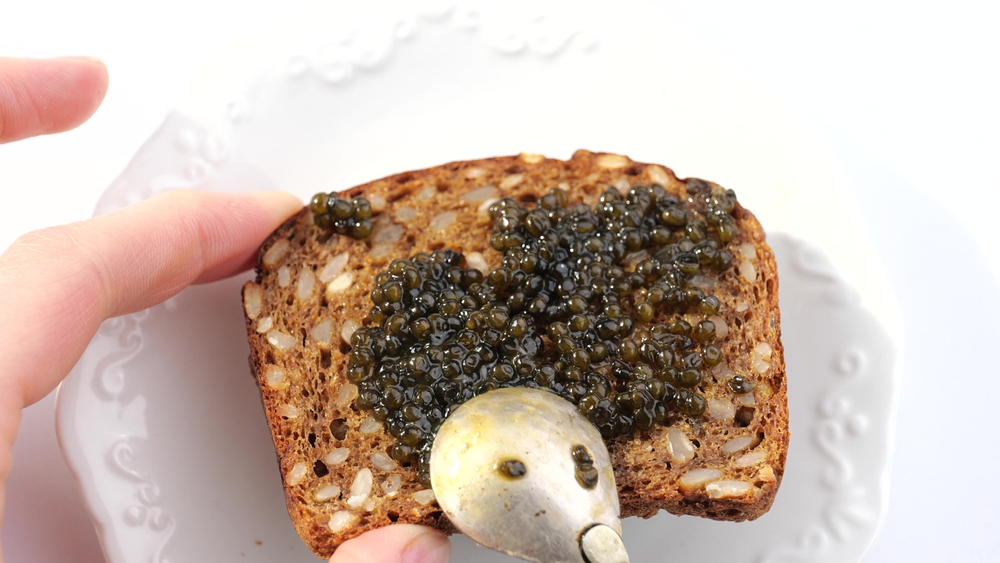As set out in the blog post "Health Benefits of Caviar", caviar is full of positive surprises and contains many healthy components. The famous American dietitian Patricia Bridget Lane describes* for the Cleveland Clinic – one of the best and most renowned hospital groups worldwide – the most important health benefits of caviar and its key characteristics for a balanced diet.
Caviar and vitamin B12
Caviar contains a large source of vitamin B12 which is essential for a normal body functioning. Vitamin B12 prevents tiredness and physical weakness and helps develop protein, red blood cells and nerve cells. It also supports the breakdown of down fats and carbs. “Caviar covers almost 236% of the recommended daily value,“ Lane says.
Caviar and omega-3 fatty acids
Omega-3 fatty acids are good fats, improve your mood and memory and support a healthy pregnancy. “There’s this misconception that if something is high in fat, it’s unhealthy because fat per gram has more calories than proteins and carbs,“ Lane says. “Many people also think that caviar’s bad for you because it’s high in fat. However, we need about 25% to 35% fat in our diet daily – and caviar is a great way to consume a good fat twice a week, if you’re able to.”
Caviar for a healthy skin
Lane continues that caviar is often found in cosmetic, anti-aging products because it’s full of omega-3 fatty acids and vitamins A and E. “Consuming caviar regularly can help combat dermatitis, scaly skin and rough skin,“ Lane notes.
Caviar and vitamin D and calcium
Caviar is very high in zinc, as well as in magnesium, iron and calcium. “If someone has a lactose allergy or doesn’t consume diary, caviar offers a great opportunity for them to get calcium in their system,” Lane says. That’s also the reason why caviar helps long-term bone health. “Arthritis and osteoporosis are common as people age, so it’s really important to focus on consuming calcium and vitamin D early on, when we’re younger,“ Lane notes. “If you’re young and like to go out, go get some caviar and up your calcium intake.”
Caviar and fat
Caviar is rich in fat and Lane advises not to exaggerate with the serving sizes or frequency. „Caviar is not meant to be eaten by the cup, it’s more meant to be sprinkled on food or eaten by the teaspoon,“ she advises. “A little goes a long way.“ Two times a week is recomsmended, according to Lane. „Most people don’t consume caviar on a pretty regular basis because it’s expensive and it’s more considered a delicacy,“ she says. “It’s always a good idea to watch how much you are eating of it. Too much of a good thing is not always a good thing because it can contribute to elevated triglycerides and cholesterol.” Besides that, Lane emphasizes that caviar is still a fantastic way to boost your health.
*https://health.clevelandclinic.org/caviar-benefits/, last accessed on 12.02.2023
